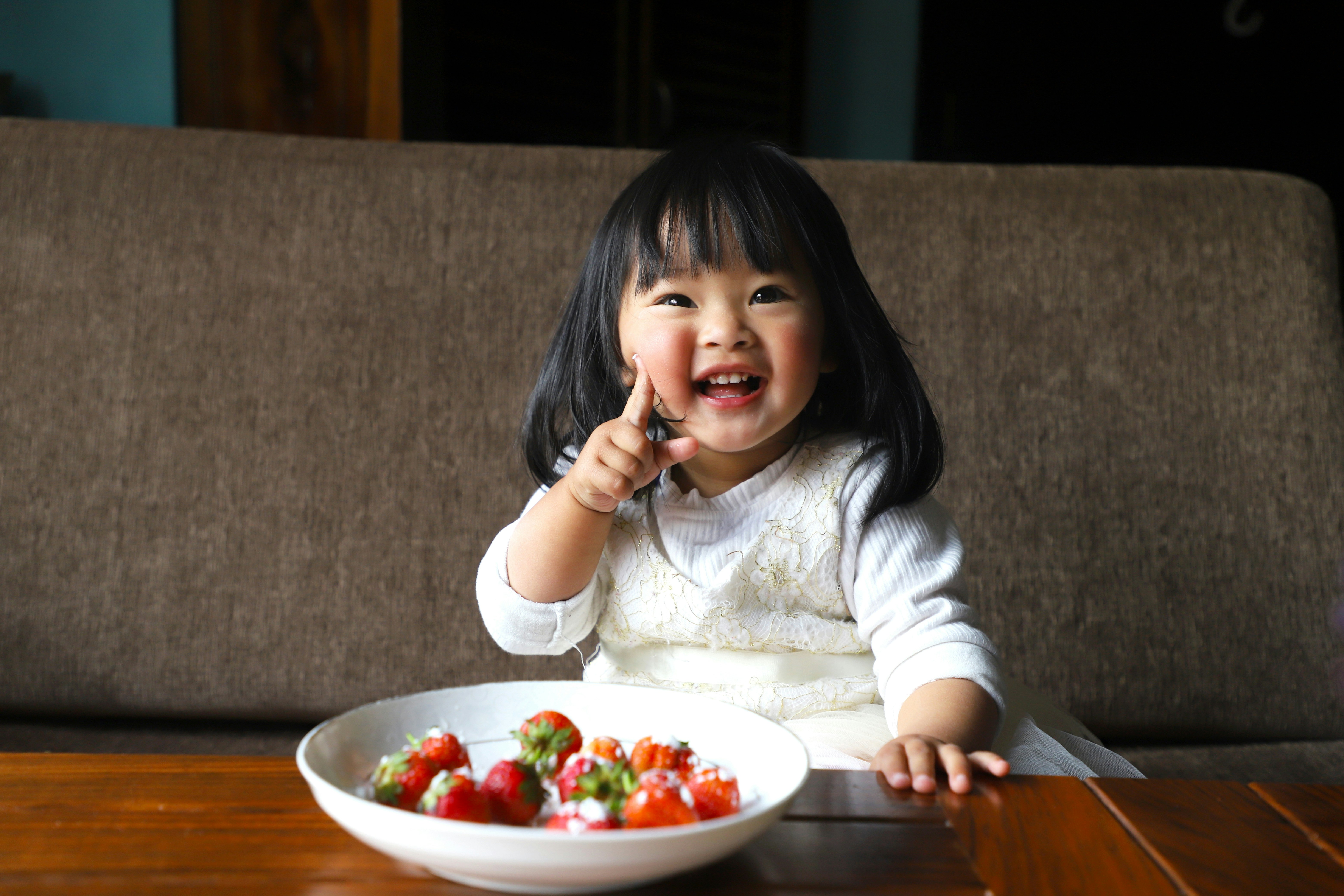How Food Can Help (or Hurt) Your Child’s Sleep
 By
Mellow Editorial Team
·
2 minute read
By
Mellow Editorial Team
·
2 minute read

Did you know that what — and when — your child eats could be the secret to better naps and smoother bedtimes?
Many parents try routines, white noise, or blackout curtains — but overlook a surprising factor: food. From bananas and oats to dinner timing, even small tweaks to your child’s meals can make a big difference in how easily they fall (and stay) asleep.
Let’s explore the link between nutrition and sleep, and how you can use food to gently support better rest — day and night.
🧠 How Does Food Affect Sleep?
Certain foods contain nutrients that support the brain’s production of calming chemicals like serotonin, melatonin, and tryptophan — all of which play a role in helping us feel sleepy and relaxed.
Other foods, on the other hand, can lead to alertness, restlessness, or even digestive discomfort, which may interfere with your child’s ability to settle down.
🥱 Foods That Promote Relaxation and Sleep
1. Healthy Carbohydrates
Complex carbs help increase tryptophan availability in the brain, promoting a calming effect — especially when combined with a regular bedtime routine.
⏰ Try offering a small portion about 1 hour before sleep.
Best options:
• Sweet potatoes – Rich in potassium and magnesium, they relax muscles and aid sleep.
• Oats – High in fiber and naturally support melatonin production. Great in smoothies or as porridge.
2. Fruits That Help Wind Down
• Bananas – Contain magnesium and B6, supporting melatonin production and calming the nervous system.
• Tart cherries – One of the few foods naturally containing melatonin. Best offered earlier in the day if your child is sensitive, as they may cause bloating in some.
• Oranges – While not a direct source of melatonin, oranges are rich in vitamin C and antioxidants that support a healthy nervous system and stress reduction.
✅ Tip: Blend fruits with oats or nut butter for a nutritious pre-bed smoothie.
3. Nuts & Seeds
• Almonds and walnuts contain natural melatonin and magnesium.
• Chia seeds and flaxseeds are rich in omega-3s, which help regulate mood and reduce inflammation.
🧠 How to serve?
Add ground nuts or seeds to yogurt, porridge, or soft fruits.
⚠️ Important: Never give whole nuts to children under 5 due to choking risk.
4. Warm Milk
• Breastmilk has natural sleep-inducing compounds — ideal for infants.
• Cow’s milk (only after 12 months) is rich in tryptophan and calcium. Serve warm and plain — no chocolate.
5. Other Sleep-Friendly Foods
Include small amounts of:
• Eggs
• Tofu or soy milk
• Avocados
• Plain yogurt
• Turkey or chicken
• Peanut butter (unsweetened)
🚫 Foods to Avoid Before Sleep
Some foods increase energy or cause discomfort — making it harder for children to sleep. Avoid these in the 2 hours before bedtime:
High-Alert Protein
• Red meat, pork, ham (especially when eaten alone without carbs)
Hard-to-Digest Foods
• Spicy or fatty meals
• Cream sauces, butter
• Citrus juices (like orange juice)
• White bread and refined carbs
• Processed snacks with additives or MSG
• Carbonated drinks
Nervous System Stimulants
• Chocolate
• Peppermint
• Caffeinated beverages (cola, iced tea)
🍽️ When and How Much Food Before Bed?
Too much food — or too little — can disrupt sleep. Aim to:
• Offer regular meals and snacks at the same time each day
• Provide a light, calming snack about 1 hour before bedtime
• Establish consistent patterns (e.g., lunch before nap, evening snack before bath and bedtime routine)
⏱️ Predictability in meal timing helps children recognize when it’s time to sleep.
⚠️ What About Food Sensitivities?
Food allergies or intolerances can lead to tummy aches, eczema, or restlessness — all of which disturb sleep.
If you suspect your child reacts negatively to certain foods, talk to your doctor or pediatric dietitian before making changes.
👩⚕️ Don’t Tweak Your Child’s Diet Without Expert Guidance
While food can play a role in supporting sleep, every child is unique — and so is their nutritional need.
This article is for informational purposes only. Always consult with your child’s pediatrician or a certified pediatric nutritionist before making dietary changes, especially if your child has allergies, sensitivities, or digestive issues.
💡 Want More Tips for Better Sleep?
Download the Mellow Kids app and explore expert-based tools to help your child sleep better — with realistic routines, gentle strategies, and science-backed advice.
💕 Created with love by Mellow Kids